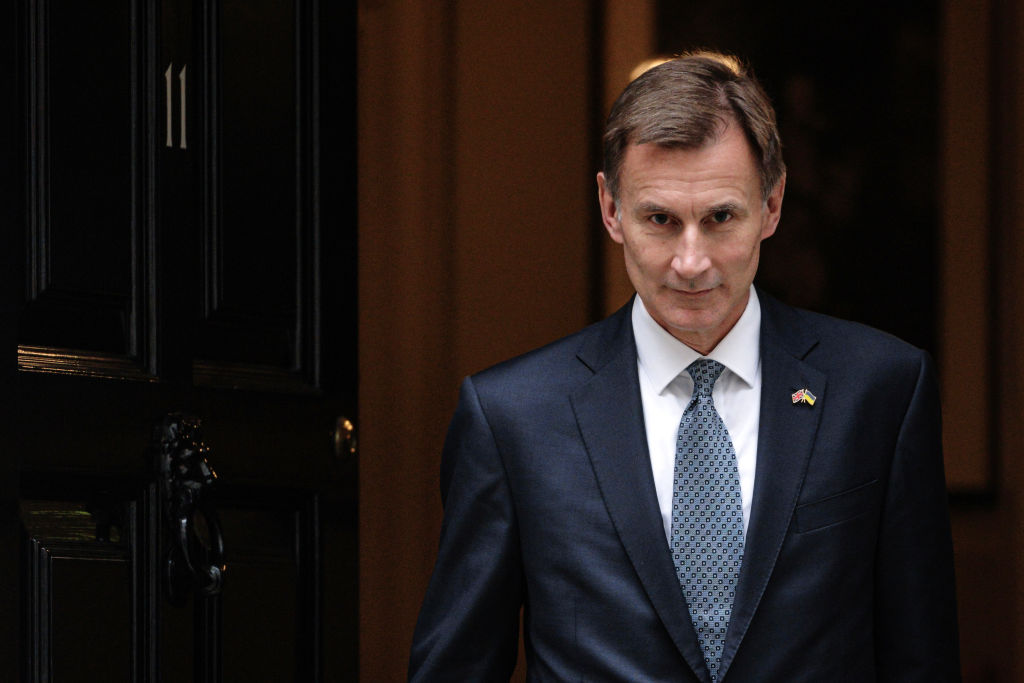Rishi Sunak’s government is trying to strike a difficult balance when it comes to discussing economic growth. On the one hand, there is broad consensus that the Liz Truss days (literally… just days) had to be dismantled to regain trust with the markets and retain the UK’s ability to keep borrowing at a stable price. On the other hand, there is recognition among ministers that the only way out of this high-tax spiral is to spur on some economic growth. In other words: achieve Truss’s goal while avoiding the many mistakes she made in her attempts to get there.
It’s in this context that we should look at today’s major financial services overhaul, dubbed the ‘Edinburgh reforms’, which Chancellor Jeremy Hunt is laying out in the Commons today. Roughly 30 regulatory reforms are being billed as ‘Brexit freedoms’ aimed at making the UK ‘one of the most open, dynamic and competitive financial services hubs’ for business.
Will the reforms deliver what’s being sold? It’s certainly a big exercise in cutting red tape
Will the reforms deliver what’s being sold? It’s certainly a big exercise in cutting red tape and, perhaps more controversially, a nod to those who have been arguing that government over-corrected for the 2008 financial crash with punitive and anti-growth measures. As far as financial services reforms go, this is a big overhaul: the ‘repealing and replacing’ of Solvency II, a technical piece of insurance regulation, became a frequent talking point for Brexiteers, who used it as an example of what could be achieved outside of the European Union. This is now set to take place, and it’s a move that the Treasury expects will unlock ‘£100 billion of private investment’ which could be reinvested into UK infrastructure projects: a way to get building and to spur on growth through private sector investment, rather than more taxpayer funds.
The government is notably energised about pushing these reforms. With relatively little in the Autumn Statement for the pro-growth lot, today’s tape-cutting exercise is perhaps the biggest indication yet that Sunak’s No. 10 and Hunt’s Treasury are not solely focused on balancing the books, but boosting the numbers within them, too. ‘These reforms are a real set of opportunities to make use of our Brexit freedoms and to improve top line growth,’ the economic secretary to the Treasury, Andrew Griffith, tells The Spectator.
But this is not only about the specific reforms being announced today. It’s also about seeking a ‘cultural change from the regulators,’ says Griffith, to prioritise ‘speed and efficiency’ in the way businesses and banks in the UK are regulated. Britain, of course, saw the benefits of having a fast and nimble regulator when it came to vaccine sign-off and rollout during the pandemic. Sunak’s government has clearly clocked this – and is increasingly motivated to apply that kind of operation to other sectors of the economy.
One of the many ironies of the leadership election this summer is that, while Sunak was characterised as being on the ‘left’ of the party, he was in fact the Brexit-voting MP on the ballot and the far more fiscally hawkish of the two candidates. Today’s changes reflect the kind of Brexit and economy he supports: one in which technical changes can go a long way to unlocking investment and cash, and one where ‘going for growth’ does not necessarily require the government to rack up significantly more debt. With key growth areas such as housing and healthcare politically toxic to touch at the moment, his government has opted to shake up the financial sector instead. No doubt there will still be demands for a more detailed growth agenda. But when these accusations are levied, ministers will now have something to say.







Comments